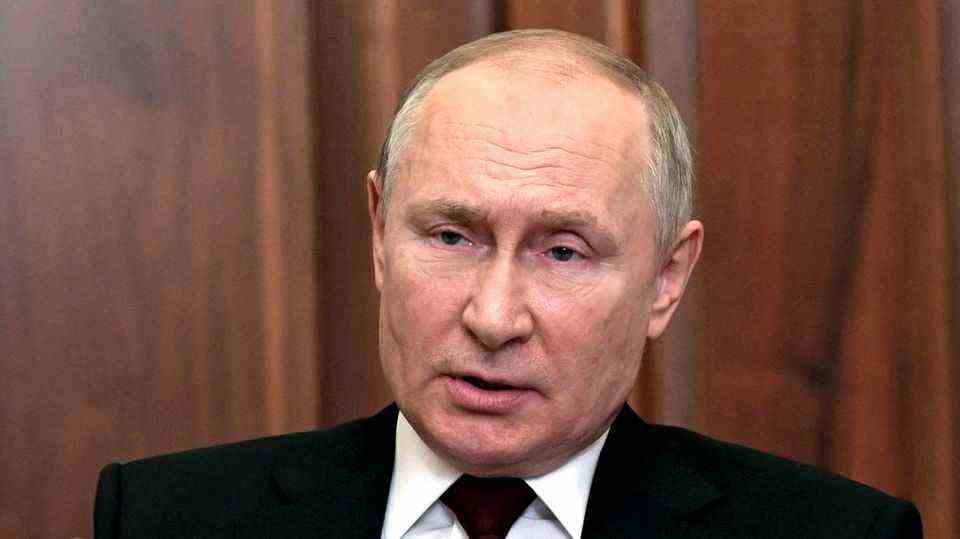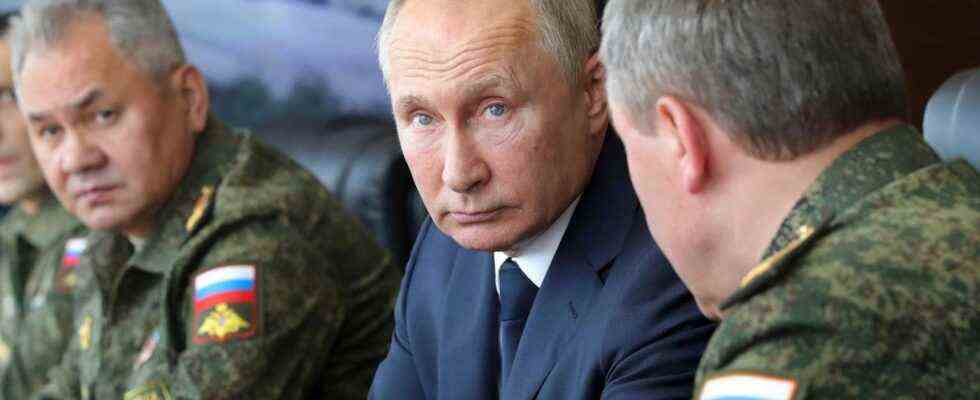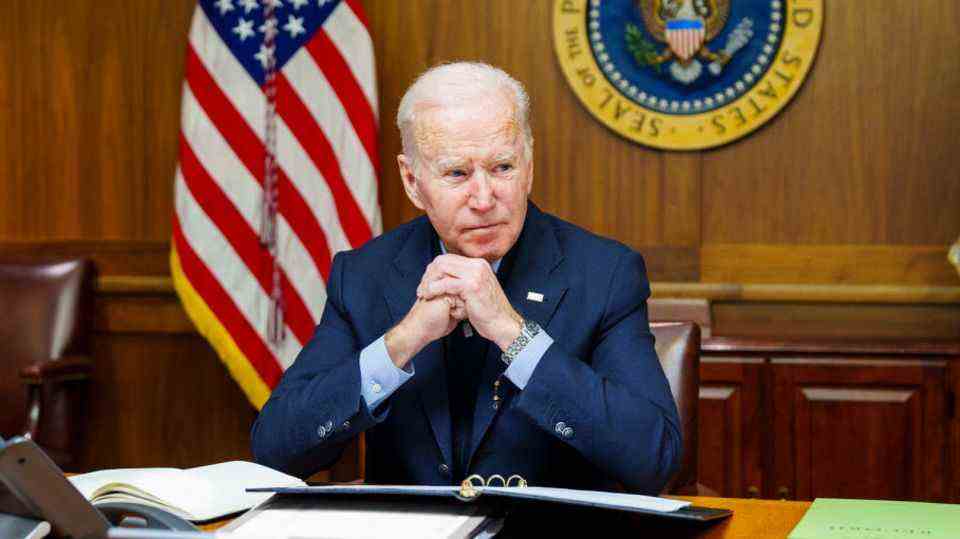analysis
Ukraine crisis
Olympic truce? Putin prefers to use the major events for war
Expansion in times of the Olympics: The President of Russia, Vladimir Putin, here during a maneuver by the Russian army
© Mikhail Klimentyev / Picture Alliance
A day after the end of the Winter Olympics in Beijing, Russian President Vladimir Putin ordered soldiers into eastern Ukraine. It is the third time that Putin has escalated conflicts in the slipstream of the Olympics.
“We urge Member States, individually and collectively today and in the future, to uphold the Olympic Truce and to support the International Olympic Committee in its efforts to promote peace and understanding among people through sport and the Olympic ideal.” These sentences are from United Nations Millennium Declarationadopted by the UN General Assembly on September 8, 2000.
The Olympic Truce, also known as the Olympic Truce, has its origins in antiquity. The Greeks understood the tradition of the Ekecheirie (armistice, divine peace) as a kind of immunity for the athletes in order to enable them to travel safely and participate. According to the UN, the Olympic ceasefire means that there should be no military conflicts in the days immediately before, during and immediately after the games.
Russia uses Olympia for military expansion
However, the idea of a comprehensive ceasefire surrounding the competitions had little to do with reality in ancient times and has little to do with reality in modern times either. On the contrary, one could even say in the case of Russia: For Vladimir Putin, the Olympic Games seem to be a welcome occasion for military expansion. The torch at the Beijing Winter Games had only just gone out when the Russian President shocked the world on Monday evening with the news that Russia recognized the independence of the separatist areas in eastern Ukraine and would send its army to the region.
The competitions in China had lasted two and a half weeks – from February 4th to 20th – and during this time Putin had steadily increased the number of Russian troops on the border with Ukraine. On February 10, he launched joint military maneuvers in Belarus on Ukraine’s northern border, according to the US with 30,000 Russian soldiers. Two days later, Russia also began naval maneuvers near Crimea. At the same time, Moscow spread the claim that Ukraine was carrying out genocide in the separatist areas and repeatedly reported alleged Ukrainian attacks on Russian territory. By recognizing the self-proclaimed “people’s republics” of Donetsk and Luhansk, Putin finally prepared the ground for military intervention.
The Russian President’s approach follows a pattern: as early as the 2008 Summer Games, which also took place in Beijing, he showed how little he was interested in the Olympic ceasefire. Shortly before the start of the competition, when the disputes between Georgia and Russia over the breakaway regions of Abkhazia and South Ossetia, which had been smoldering for years, escalated, the then Russian President by Putin’s grace, Dmitry Medvedev, announced “countermeasures” against an alleged “Georgia’s military offensive”. On August 8, 2008, while Putin was still watching the opening ceremony of the Olympic Games from the stands of the National Stadium in Beijing, Russia attacked Georgia from the air, land and sea.
How Ukrainian civilians are preparing for a war with Russia
10 images
The war lasted only five days. Russia’s tanks had caught the west off guard. On August 12, Medvedev stopped the attack. The security of the soldiers and the citizens is guaranteed and the “Georgian aggressor” is being punished, he explained and warned that one could strike again at any time. The Caucasus conflict had a major impact on the relationship between the EU and the US and Russia. East-West relations fell into a serious crisis.
Ukraine will be a victim at the 2014 Winter Games
Only six years later, when Putin himself hosted the Olympics at the Winter Games from February 7 to 23 in Sochi, came his most momentous disregard for ekecheirie to date. The games were a prestige project for Putin, with which he actually wanted to demonstrate Russia’s performance. But debates about human rights violations, the environmental problems of winter sports in the Black Sea region, which is much too warm, and the immense security measures and costs had already cast dark shadows on the major event in advance. Numerous high-profile politicians and heads of state therefore stayed away from the event. Neither the then Federal President Joachim Gauck nor Chancellor Angela Merkel traveled. The seats of French President François Hollande and US President Barack Obama at Fisht Stadium also remained empty.

In retrospect, those who were absent may have been particularly relieved about their boycott of the games. Because while the athletes were still fighting for medals, Putin was preparing to annex Crimea, which belongs to Ukraine. In the morning hours of February 27, 2014, the time had come: Soldiers without rank or insignia on their uniforms, who were presumed to be Russian special troops, occupied strategically important points on the peninsula. Soon they controlled the regional parliament and the regional government building in the capital, Simferopol, and hoisted the Russian flag on official buildings. Just three weeks later, on March 18, 2014, Putin signed a treaty incorporating Crimea into the Russian Federation.
“You have to be clear, it’s nothing more than that. It’s an ethical statement,” said Wolfgang Dietrich, a peace researcher at the University of Innsbruck. on Deutschlandfunk the United Nations resolution on the Olympic Truce. For Vladimir Putin it is probably not even that anymore.
Swell: United Nations Millennium Declaration, Federal Agency for Civic Education, State Center for Political Education Baden-Württemberg, Deutschlandfunk



